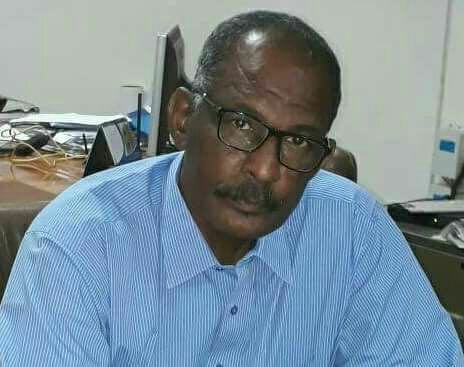Opinion
UNITAMS and UNAMID (1)

By Mohamed Wadaa
In 2020, Prime Minister Abdalla Hamdok sent a letter to the United Nations Secretary-General requesting the UN to secure a mandate from the Security Council for establishing a peace-support operation under Chapter VI as soon as possible. The proposed mission, intended as a political mission with a strong peacebuilding component, was to cover all Sudanese territory. Following the leak of this letter and the emergence of protests from political and public forces, Hamdok issued a modified statement claiming he had consulted all political factions, though some leaders in the Forces of Freedom and Change were surprised by it. Eventually, however, they complied and endorsed the request. In June 2020, the Security Council issued Resolution 2524, establishing the United Nations Integrated Transition Assistance Mission in Sudan (UNITAMS) with four primary objectives: supporting the democratic transition, enhancing and completing peace efforts, protecting civilians in conflict zones, and enabling developmental initiatives.
Setting aside the issues surrounding the original and amended requests, and the controversies over how the mission head was appointed, the UN Secretary-General’s Special Representative and head of UNITAMS, Volker Perthes, made an initial statement in January 2021, remarking that “achieving stability in Sudan is impossible with the presence of three separate armies.” Yet, he noted that the mission could not solve all of Sudan’s problems, stating that “the solution is ultimately in the hands of the Sudanese people.”
A few days later, Perthes announced at a press conference that UNITAMS would provide Sudan with support through various political, developmental, and peacebuilding initiatives. These included assistance in achieving the goals of the Constitutional Document of August 2019, implementing the national civilian protection plan, supporting the political transition, progressing toward democratic governance, and promoting and protecting human rights and sustainable peace. The mission’s objectives also encompassed supporting the pathways of peace, implementing future peace agreements, providing aid for peacebuilding, protecting civilians, and enforcing the rule of law, particularly in Darfur and the Two Areas (South Kordofan and Blue Nile). Moreover, UNITAMS was tasked with facilitating economic and developmental assistance, coordinating humanitarian aid by integrating UN agency resources and programs, cooperating with international financial institutions to meet Sustainable Development Goals, and supporting political stability, constitutional drafting, elections, and census-taking.
Over time, Sudanese citizens came to realize that “the matter was not in their hands.” Perthes created both tripartite and quadrilateral frameworks, expanding UNITAMS’s mandate and extending his own powers. This included supporting political stability, constitutional drafting, and population census-taking—tasks beyond the Constitutional Document’s original objectives, which he claimed to support. Observers noted that Perthes had taken control over nearly every aspect of Sudan’s political, economic, and social life, giving himself authority over matters ranging from transitional government powers to the Sovereign Council, and supporting the Lawyer’s Steering Committee’s draft constitution and the Framework Agreement. He organized and attended workshops on the Framework Agreement, setting conditions on who could attend and sign the agreement, effectively assuming governance.
Following Prime Minister Hamdok’s decision to relinquish oversight of the peace process and hand economic responsibilities to General Hemeti, protection of the transition was left in Perthes’s hands. As a result, he extended his influence, producing the Framework Agreement and contributing to the first formal split within the revolutionary forces by organizing the Friendship Hall conference in August 2021.
The African Union-United Nations Hybrid Operation in Darfur (UNAMID) was established in July 2007 under Security Council Resolution 1769, with the primary mission of protecting civilians, ensuring humanitarian aid, monitoring and enforcing agreements, assisting the political process, strengthening human rights and the rule of law, and overseeing the Chad-Central African Republic border. UNAMID’s force included about 20,000 soldiers and officers, including around 2,000 police officers. Yet, this force did little; in fact, it often operated under the protection of the Sudanese army and struggled to defend its own camps from attacks and thefts, let alone fulfill its civilian protection mandate.
Despite these failed UN missions, some politicians from “Taqadum” and affiliated organizations submitted requests for international intervention to protect civilians—a flawed appeal with questionable motives.
To be continued.



